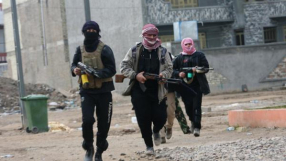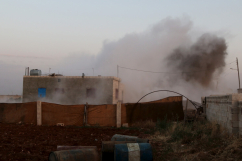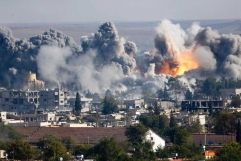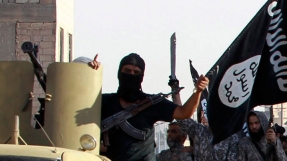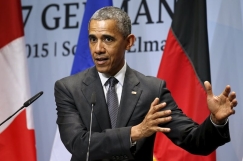The US military has decided to employ the so-called "lily pad" strategy in its attempt to defeat the terrorist Islamic State group in Iraq and Syria even though such strategy did not work against the Taliban in Afghanistan.
Washington is also set to send 450 more US military advisers to Iraq, a move meant to boost the fragile Iraqi government without the US being directly involved in the war.
The US military's strategy involves expanding "lily pads" that will spread across Anbar province, where the ISIS took the capital in May, according to Time.
"Our campaign is built on establishing these 'lily pads' that allow us to encourage the Iraqi security forces forward," said Army General Martin Dempsey, chairman of the Joint Chiefs of Staff. "As they go forward, they may exceed the reach of the particular lily pad," which allows the creation of new ones.
Similar campaigns have been carried out in both Afghanistan and Iraq, but they were called "oil spot" or "ink blot" strategies.
In 2005, retired Army lieutenant colonel Andrew Krepinevich said of the "oil spot" strategy: "Since the US and Iraqi armies cannot guarantee security to all of Iraq simultaneously, they should start by focusing on certain key areas and then, over time, broadening the effort—hence the image of an expanding oil spot."
The announcement of the strategy on Wednesday increases the number of US bases in Iraq to five.
"We're looking all the time to see if additional sites might be necessary," Dempsey said, but clarified that the current two in Anbar would probably suffice for that province. "I could foresee one in the corridor that runs from Baghdad to Tikrit to Kirkuk over into Mosul."
Earlier, the White House said it would send 450 more military advisers to Iraq, the second increase since US troops returned to the country last year, wrote The Washington Post.
Their mission is to help Prime Minister Haider al-Abadi reach out to estranged Sunnis and to prop the Iraqi army, which has shown lacklustre performance against ISIS. The US military advisers will be overseeing the offensive to retake ISIS-controlled areas, specifically Ramadi and the surrounding Anbar province.
US government officials fear that a weakened prime minister would build up Shiite Iran, which has positioned itself as Iraq's only effective partner against the Sunni-dominated extremists.
"The trend lines [for Abadi] are not good," said Doug Ollivant, a former military planner in Baghdad and senior fellow at the New America Foundation. "He needs a win — and preferably a string of two or three of them."










